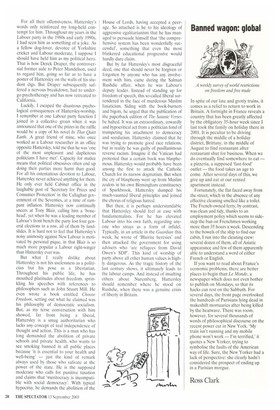Banned wagon: global
A weekly survey of world restrictions on freedom and free trade In spite of our late and grotty trains, it comes as a relief to return to work in Britain. A fortnight in France reveals a country that has been greatly affected by the obligatory 35-hour week since I last took the family on holiday there in 2001. It is peculiar to be driving through the middle of a holiday district, Brittany, in the middle of August to find restaurant after restaurant shut for business. When we do eventually find somewhere to eat — a pizzeria, a supposed last-food' outlet — the food takes an age to come. After several days of this, we give up and eat at our rented apartment instead.
Fortunately, the flat faced away from the street, which in the absence of any effective cleaning smelled like a toilet. The French-owned ferry, by contrast, was clean and tidy, thanks to an employment policy which seems to sidestep the ban on Frenchmen working more than 35 hours a week. Descending to the bowels of the ship to find our cabin, I run into the cleaning crew: several dozen of them, all of Asiatic appearance and few of them apparently able to understand a word of either French or English.
If you want to read about France's economic problems, there are better places to begin than Le Monde, a newspaper which does not even bother to publish on Mondays, so that its hacks can rest on the Sabbath. For several days, the front page overlooked the hundreds of Parisians lying dead in makeshift mortuaries after being killed by the heatwave. There was room, however, for several thousands of words of philosophical discourse on the recent power cut in New York. 'My train isn't running and my mobile phone won't work — I'm terrified,' it quotes a New Yorker, trying to symbolise the faults of the American way of life. Sure, the New Yorker had a lack of perspective: she clearly hadn't considered the prospect of ending up in a Parisian morgue.


























































































 Previous page
Previous page